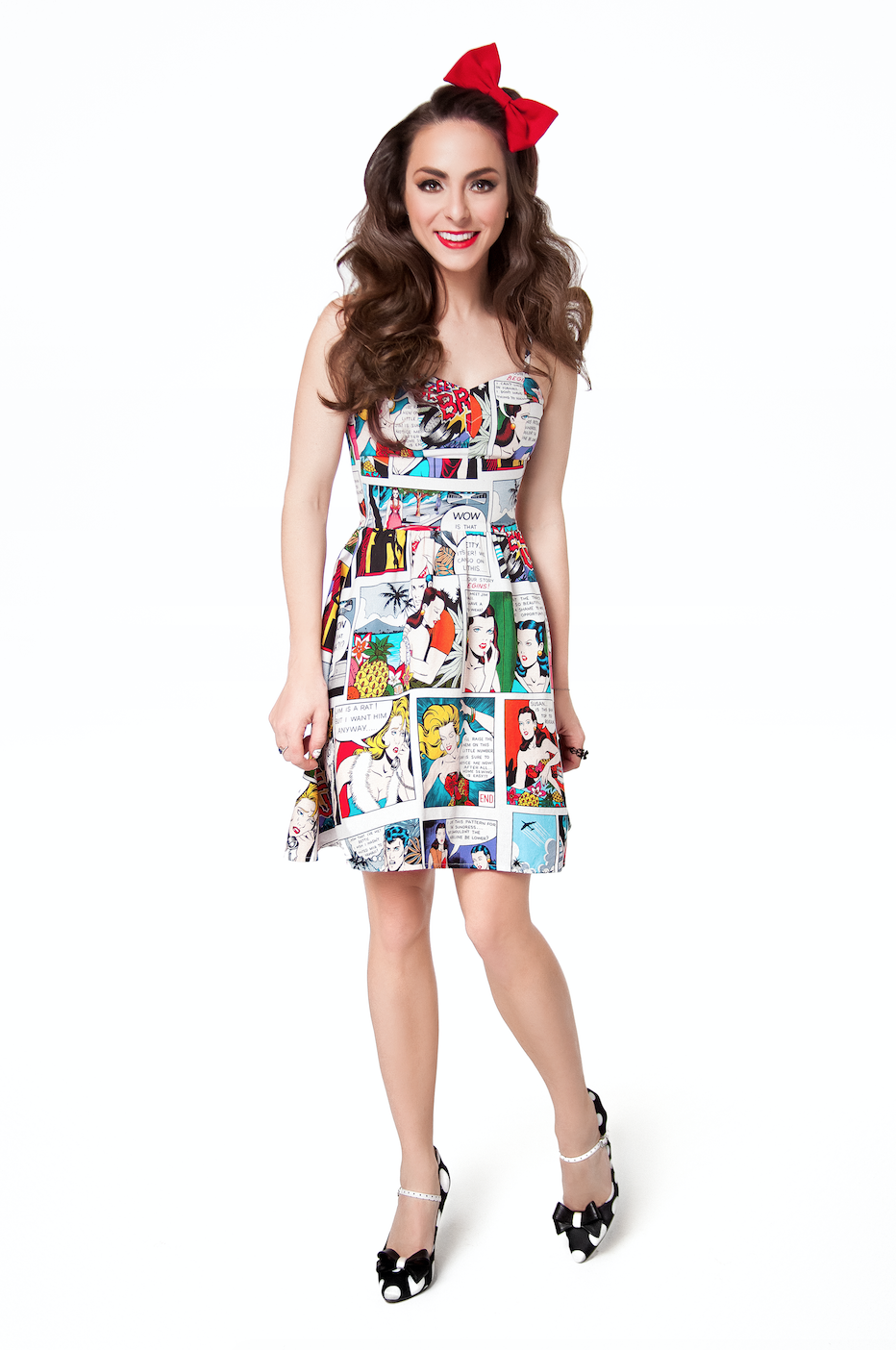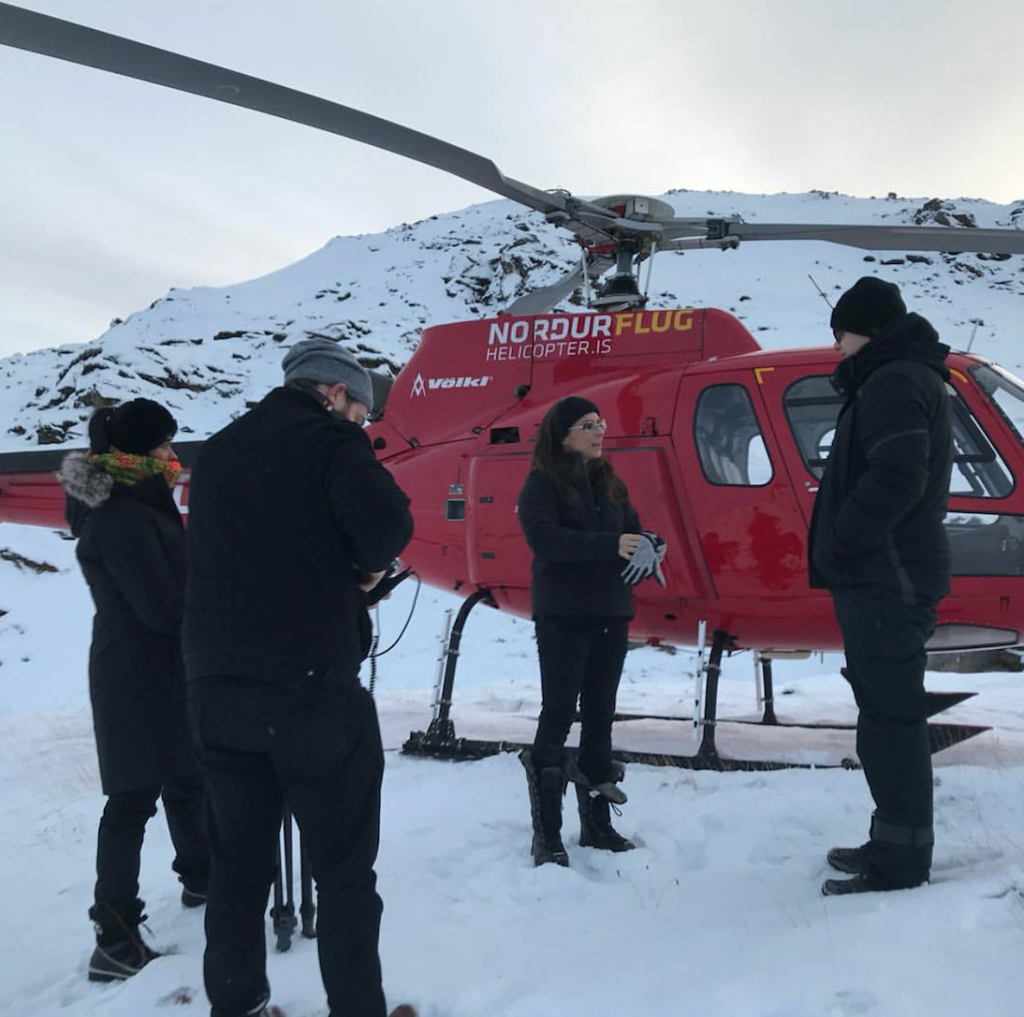
Unapologetically Katie: A Conversation With Emmy-Winning Tech Expert Katie Linendoll
Robert Irvine Magazine: You’ve been coding since you were 12. For folks that don’t know what that means, can you explain?
Katie Linendoll: Foundational code is called ‘scratch’. It’s like building blocks. When you write code, it sounds very complex, but when you’re putting in different words, it eventually equals something. Behind the scenes, your computer is made up of lots of different coding languages. You can create things, essentially, from strings of words. And I became compelled by that at a very young age, and then ended up getting my—it sounds super-nerdy—but my networking certifications by the time I was 18 and still in high school. Then my degree was in information technology.
There are lots of different coding languages out there and kids now are exposed much more to that now than ever before. When I was little it wasn’t very popular and it wasn’t as cool as it is right now. But to see things come to life onscreen and to see how things work behind the scenes really captivated me and I found it very powerful.

Katie Linendoll on location in Iceland with her production company, Katie Linendoll Productions, to film a story about renewable energy. Linendoll previously won an Emmy for her work on ESPN. A Today Show and Weather Channel correspondent, she sponsors a school in Kenya and works to distribute VR headsets as recreational therapy for pediatric cancer patients.
RI: You will likely think this is a dumb question—and I know it exposes how little I know about computers—but can you hack something?
KL: I used to be… my mom says I’ve turned things a lot more positive lately, but I started messing around with, you know, behind the scenes computing and how to get into different systems, when I was in high school. I definitely parlayed that into more positive experience. Now I’m much more into a consumer-friendly, technology space. I’ve moved in a different direction.
RI: That’s good, because they’d be coming after you if you had a different answer.
KL: Exactly.
RI: Are there any TV shows or movies that get computers right? I feel like writers can get away with general audiences by turning computers into magic boxes that do anything. Someone runs over to a computer and they start pounding out indiscriminately on a keyboard and then their problems are solved.
KL: I think it’s infiltrated culture in a big way and it’s more realistic the way it’s represented. Just the other night I was on a Homeland binge, and one of the latest episodes was on ransomware. I think that ransomware episode on Homeland showcased a problem that’s been happening for quite a while now—and how many big businesses get hit where your computer will get completely locked down. It can happen to anybody and it can happen to big businesses. So I think it’s well-represented, in terms of the good, the bad, and the ugly, but also just how powerful it can be.
RI: Tell me about the VR initiative you have for kids with cancer.
KL: I’ve been working for seven years as a volunteer for kids diagnosed with pediatric cancer. I’m a big sister to them. I go in and spend time with them, taking them to the movies and using different kinds of gaming to get their mind off things. It’s what I call ‘distraction technology’. I started working at Sloan-Kettering in New York. They would be there, transported from wherever they live in the world, for days, weeks, months, and it’s a laborious treatment process. It’s brutal.
I’ve been working in virtual reality since the early days, and when I first discovered VR I was hooked. The first thing I tried had me training on a Navy ship. It was such a realistic environment. I was on this boat and I was like, ‘Wow, I feel like I’m in a whole other digital world.’ And I not only saw that for like the gaming side of things, but I saw what it could be for physical therapy and other kinds of treatment. For pediatric cancer patients, this is obviously great distraction technology. So we started implementing VR into trial programs into some of the hospitals.
To take a kid who’s in an environment where—those hospitals are just brutal in themselves—but now they can be underwater and diving with whales, or they can be on a roller coaster. And the content for VR just keeps coming out and getting better.
RI: You also sponsor a school in Kenya. You did this out of your own pocket?
KL: Yeah, I do a lot of conscience projects out of pocket. It’s very important to me. I say that my journalistic work is far more than just doing a story and then kind of on to the next thing. I follow up on many of my pieces that need it. I’m on the road about 280 days a year, and a lot of my stories are on location. One was in the slums of Kibera, Kenya, which is actually the second-poorest part of the world.
I was following a big e-reader program called World Reader, which gives out e-reader devices and then the kids are able to, within seconds, download thousands of books that are culturally relevant to them. So these schools that didn’t have anything can now, through technology, download all of these books for their curriculum.
I became so fascinated with this program that I ended up sponsoring a school over in Kisumu, Kenya. No matter where you are in the world, you can still give back. And again, an example of the power of technology that can be accessed to anybody anywhere.
RI: You’re an advocate for STEM (Science Technology Engineering and Math) for young girls. That seems so relevant right now in the context of everything that’s going on with #MeToo. The Atlantic recently ran a cover story ‘Why is Silicon Valley So Awful To Women?’ And in that cover story, there are really awful stories that women share about an industry that treats them as second-class citizens. I’m curious how much optimism you might have that the tech world can clean up its act? Because it is male-dominated to a degree where it seems like there are too many blind spots.
KL: It’s a good question. I have to say, from my perspective, this growth in STEM leads to so much optimism. I started in technology at a time where it was so rare to be a female. I was the only female, typically, in all of those classes, but I was thriving in a male-dominated world. Not only did I get a degree in IT but then I went on to ESPN, which was another male-dominated world at that time. So I think STEM is hugely important. The research says if girls aren’t interested in science, technology, engineering, and math by middle school, then it’s gone.
My thing is I don’t tell them to go into computer science or into engineering. Any career ideas that people throw at a child is boring. But if you show them that they can create an app or they can work with a school over in Kenya on e-reader technology, then it piques their interest. When I go into schools and I give them hard, concrete examples of what I’m doing, then the kids light up. They just want me to keep talking. I think that’s critical.
So, yes, of course, there are some terrible stories from women in technology right now, but I think we’re in a very powerful movement on the flip side, and I think there’s so much optimism.
RI: The fact that it’s even being talked about is a huge plus. But I’m also curious: do you feel like you had to develop skills that a man would not have to develop? Just in terms of how to deal with difficult personalities or people that might look past you? The Atlantic showed that women in tech are interrupted more in meetings than men are. They’re evaluated on their personality traits in a way that men are not, and they’re also less likely to get funding from venture capitalists. Do you feel like you had to kind of develop a sixth sense to deal with men who are dismissive or pushy or anything like that?
KL: It’s a great point. I think I’ve always, being both in the sports world and the tech world, I think I’ve always worked a little harder, or felt like I’ve needed to prove myself a little bit more, and I can tell you even today, when I got into different environments, I can tell immediately if I’m getting that look like, “Who’s this girl and where’s she from?”
And I’m so unapologetically female about who I am. I’ll throw a bow in my hair and I’ll have a cute outfit on and my makeup all done; I’m just not apologizing for that. I’m very, very girly, but at the same time I’ll go toe-to-toe with you. I think allowing for that environment and reshaping that environment is so important. I do feel like I have been challenged, absolutely, in the past. And when you are the only girl in the class, or you are in an environment that is male-dominated, you know, innately, but it can spur an attitude like, ‘All right. Bring it.’ You have to be ready for that.
I think it builds a confidence. I’ve told girls, ‘Use it to your advantage.’ I think it’s kind of cool in some ways to be like, ‘Yeah, there’s only two, three females in here, but we’re killing it.’ So I tell people to flip their attitude on it, but I think it’s something that we’re still working on.
RI: That’s a great perspective, to be thankful for having it harder because it made you stronger.
KL: It makes you unique, in a way, I think.
RI: In terms of general success, is there a single most valuable lesson you’ve learned in getting to where you are now, or have you developed rules for success that you share with young girls who look up to you?
KL: I think you need to realize there is no such thing as a 9-5 work day. I work an insane amount of hours, but I love what I do, and I think putting in all those hours makes you grow.
I have about 30-plus freelancers that I work with on my team; I run my own production company and have everyone from an SEO team to graphic designers to an analytics team. There’s a lot of people I work with and I very much value their experience in what they do.
I know how to run a camera and I know how to edit. It’s important to be able to speak to your teammates and to understand their job. It’s critical. I think a lot of people now are like, ‘You know, that’s not my job. That’s not what I’m supposed to be here to do.’ I’ve always been ready to do anything. And I’m still like that. Being game for any environment or any task is huge. It’s an attitude that shows your character.
Follow Katie Linendoll on TWITTER and INSTAGRAM and visit her website, KatieLinendoll.com.

